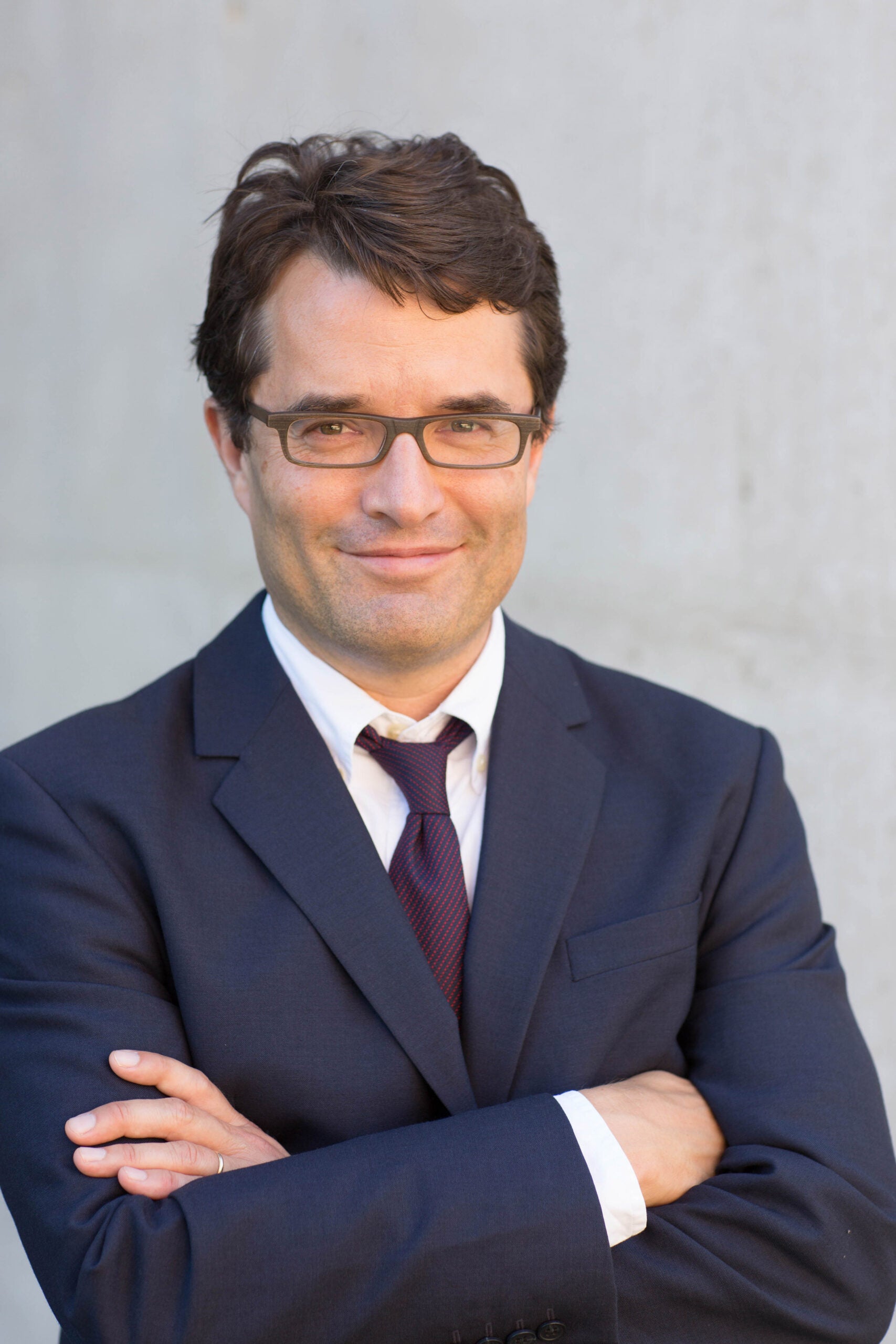Professor of Practice Alex Whiting chose a personal story for his Last Lecture to the class of 2018, one about the development of, and lessons learned from, an unexpected relationship.
On the morning of September 11, 2001, Whiting was a prosecutor at the U.S. Attorney’s Office in Boston. At 8 am, he learned that he had gotten his dream job as a prosecutor at The Hague, for the International Criminal Tribunal for the Former Yugoslavia. At 9 am, “the world changed,” recalled Whiting, and a few months later he and his young family moved to The Netherlands for this “assignment of a lifetime.”
On September 27, 2001, the Tribunal charged Slobodan Milošević, the former president of Serbia and the Federal Republic of Yugoslavia, with genocide and war crimes in Croatia, Bosnia, and Kosovo. Milan Babić, at the time a dentist in Belgrade, was named a co-conspirator.
In the early 1990s, Whiting had graduated from law school and was a new prosecutor at the Department of Justice. At the same time, Milan Babić was rising through the the political ranks in a fracturing Yugoslavia, eventually becoming president of the Serbian Democratic Party in Croatia. He and the military leader Milan Martić joined Milošević in an attempt to create an ethnically pure country for Serbs. They seized nearly the entire lower third of the country and attacked its small villages, murdering, detaining, and driving out thousands of non-Serbs. Babić went on to hold several roles in the government, but within several years had been weakened and largely sidelined by Milošević.
In 1995, in the largest land battle in Europe since WWII, Croatia regained control of the Serbian republic, and the Serb population and government, including Babić, Milošević, and Martić, were driven out.
After Milošević’s 2001 indictment, Babić, in a panic that he might be next, reached out to the Tribunal and became a cooperating witness. In the spring of 2002 he arrived at The Hague, meeting Whiting for the first time. For the next six months, Whiting prepared Babić for his testimony and guilty plea, spending every day going over the minutiae of his time with Milošević.
In December of 2002, in a trial that would last for four years, Babić took the stand as the star witness, a “high-level insider who had heard it all–prosecutorial gold,” recalled Whiting. Babić “gave voice and color to the smallest and the largest of Milošević’s plans, none of which were ever written down,” said Whiting.
In June of 2004, Babić was sentenced to 13 years in prison and was sent to an undisclosed location in Great Britain. Whiting moved on to prosecuting Milan Martić, whose trial began in 2005.
In early 2006, Babić returned to The Hague to testify against Martić. “He was a changed man,” recalled Whiting, “calm, with a new focus on religion, and a commitment to helping the case.”
After several weeks of questioning, Whiting closed by asking Babić to recall his own role in the case, to remind the jury and judge that Babić was a credible witness who had taken responsibility for his own crimes. Whiting played a video clip from the trial, in which Babić stated, “In 1991 I succumbed to the passions of politics and ethnical egotism.”
On Sunday, March 5, two weeks into cross-examination of Martić and the day before court was to resume after the weekend, Whiting received a phone call–Babić had committed suicide in his cell.
Hands and voice trembling, Whiting emotionally recounted how he “just broke down, sobbing” at the news. “That was such a strange and difficult moment for me,” he continued, “I had come to The Hague to prosecute war criminals, put them in jail, and here I was sobbing at his death.”
Still wrestling, now 10 years later, with qualifying the relationship they had, Whiting asked, “There’s no word for it–what is he to me? A colleague? A friend? I’m fine with friend. He was a friend.”
“I want to leave you with two things,” continued Whiting, “the first: you’re always playing with real money. No matter what type of work you do, there are always real lives behind it.” And second, “The world is full of gray. Milan Babić was gray to me. He did some terrible things, but he was not a monster. He was a real and complicated person.”
He then summarized the case’s aftermath. Milošević died of a heart attack six days after Babić’s suicide, just days before his conviction. Despite fears that Babić’s incomplete testimony might be discarded, it was allowed and proved central to Martić’s conviction and sentence of 35 years in prison. As well, Babić’s testimony was entered into future trials, and the rules of the Tribunal were altered to ease the inclusion of evidence from a deceased witness. Whiting takes “solace” in the fact that Babić’s contributions were important in reconciliation, accountability, and convictions.
“I leave you with that,” concluded Whiting, “and hope that as you navigate the grays of life in your future careers, that you are able to find justice and do justice.”
